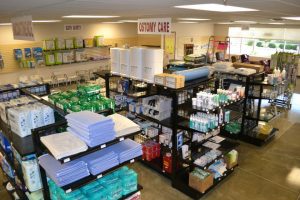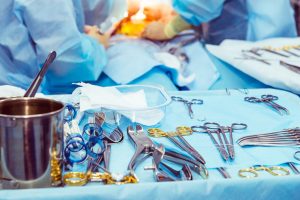When we think of medical supplies, we visualize all those objects used by doctors in clinics and hospitals or recommended for patients: from surgical nets, to orthosis, orthopedic footwear, wheelchairs, walking devices, portable oxygen concentrators and many more. But it is not just about objects and devices, but also about consumables, which are essential for some items to perform their basic functions or must be used within a short time (e.g. cotton wool). Accessories also add to the functions of medical supplies, even if they are not always essential. And there are also spare parts, required to maintain the basic function of a medical item.
Medical supplies have a great impact on the quality of patient care; this is why they account for a very high proportion of health care costs. Health services but also people in general must make informed choices about what supplies to buy in order to meet priority needs. This way, wasting limited resources will be avoided.
Like we said before, there is a wide range of medical supplies, which will make the selection quite challenging, so you will likely need a checklist. You should be able to find quality supplies at a good price, if you take your time to do some prospective research. Always take into account factors like safety, performance, design, materials and packaging, and buy from authorized sellers, who correctly manage their medical supplies, provide effective storage and stock control.
High quality supplies are always expected to last longer and help users get better results. However it is good to remember that it is not necessary to purchase the most expensive medical supplies you can get, because this is not always cost-effective. Just find the right balance between price and quality, and calculate or estimate correctly your needs.

Identifying suppliers
If you are on a budget, you will need to look for the best medical supply stores Denver has that are able to provide you affordable medical supplies that are still of good quality. The good thing is that you can shop locally or internationally, considering that online transactions are now easy. When you select a supplier, take into account prices and product quality, but also warranties, delivery time, transportation costs, reputation and reliability.
You can get your medical supplies from retailers, wholesalers, manufacturers, medical stores, as well as from non-profit supply organizations, as long as they are authorized to sell them. Get quotations before making orders, and compare the offers of different suppliers.
Affordable medical supplies that have a warranty may still have a red flag; make sure you also check the manufacturer`s liability for maintenance and repairs. Having an authorised representative in your country is definitely an advantage, because sending medical supplies back to the manufacturer can be very costly and time-ineffective.
When you find a reliable supplier, keep monitoring their activity and performance, just to be sure that they are constant in providing quality medical supplies and maintain a good relationship with their clients. If you become a regular client, you may also get different types of discounts.

